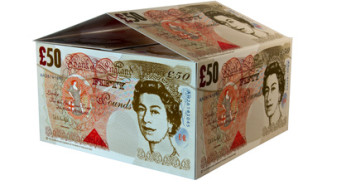The economic situation in the UK isn’t impressive in Q4, after an excellent Q3. All signs released during November point to a danger of a triple-dip recession.
Nevertheless, the pound enjoyed the appointment of Mark Carney as the governor of the BOE. Will the pair challenge high resistance?
* This article is part of the December monthly forex report. You can download the full report by joining the newsletter in the form below.
Mark Carney currently heads the Bank of Canada and will cross the Atlantic only in the summer of 2013. Nevertheless, Carney is considered a very hawkish central banker, and this is very different from the current dovish policy of the BOE.
The Bank of England maintains a very high level of QE in comparison to other countries that launched such a policy. In Canada, the BOC had the chance to raise the rates since the crisis.
However, it isn’t only a difference between the personalities in the central banks: the economies are quite different.
In the UK, we have seen some negative signs:
- Instable PMIs that don’t support further growth: for example: a drop of the all-important services PMI to 50.6 points – very slow growth.
- Another rise jobless claims which began after the Olympics: 10.1K in October.
- Unconvincing figures in manufacturing and housing: such as a drop of 0.7% in the Halifax HPI and ongoing contraction in manufacturing PMI, 47.5 points for October and 49.1 in November.
- A big drop in retail sales: 0.8% in October.
In addition, the level of inflation refuses to fall, surprising with a rise to 2.7% in headline CPI. This makes monetary policy more complicated: how can more easing be announced when prices are rising? Many talk about stagflation in the UK.
No change in rates is expected, but an expansion of the QE program cannot be ruled out after one member already voted for it in November. Recent economic data hasn’t been too favorable and it seems that Q3 was the (Olympic) exception rather than the norm. The pound seems to enjoy future monetary prospects: a more hawkish policy under Carney. For December’s meeting, no change in policy will likely result in any big change in GBP/USD, while more QE could send the pound initially lower, but without a long lasting effect. QE has a much more significant effect in the US than the UK. The decision might be somewhat overshadowed by the Chancellor’s Autumn Statement.
The only good thing expected in December is a confirmation of the 1% growth rate in Q3, something that will not return so quickly.
